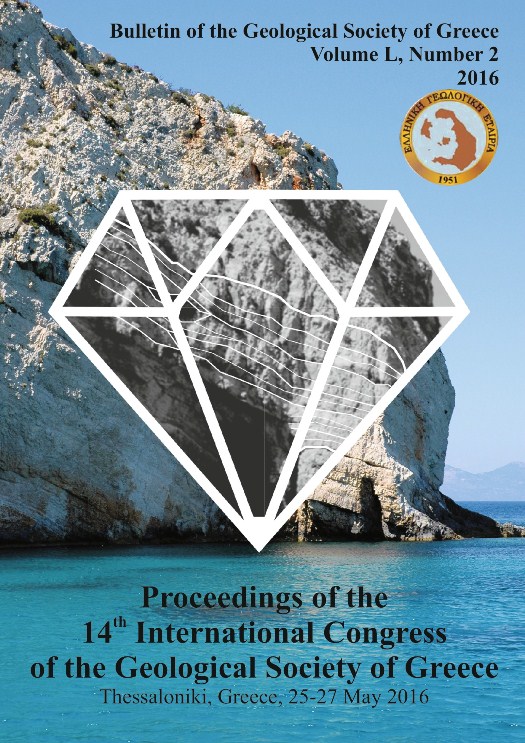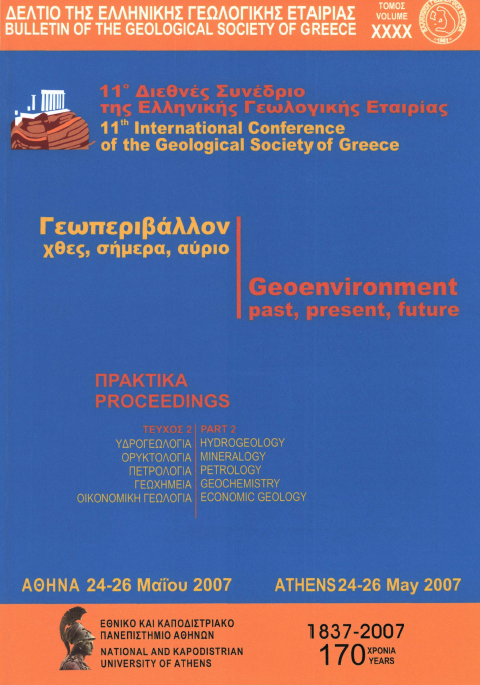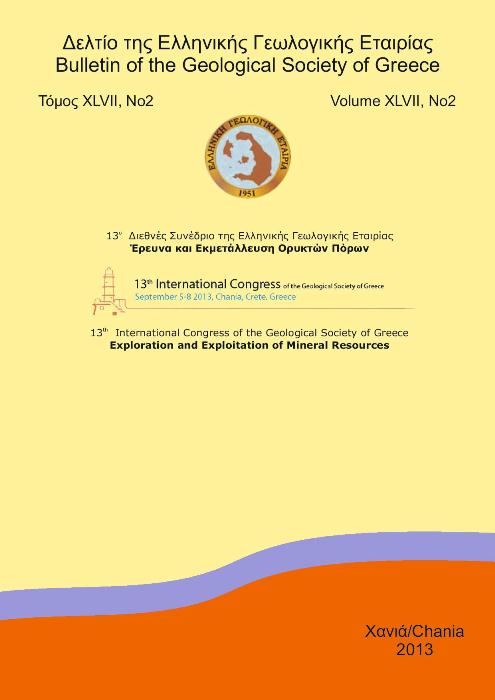HYDROGEOLOGICAL CONDITIONS AND GROUNDWATER QUALITY IN VAGIA BASIN (VIOTIA/GREECE)
Résumé
This study refers to hydrogeological conditions that dominate in the closed basin of Vagia of Viotia with emphasis on groundwater quality. It highlights the environmental problem of the region, associated with floods, phenomenon which occurs every year and lasts throughout the wet season. This, results in flushing undesirable substances from the territories of intensely cultivated area and the penetration into the groundwater of Neogene- Quaternary and carbonates aquifers. Qualitative charge of groundwater is reflected in the high concentrations of the ions Na+:22,2-133,4 mg/l, K+:0,3-12,0mg/l, SO4 2-:2,1-68,9mg/l, Cl-:24,8-241,1mg/l, NO3-:13,6-67,0mg/l, NH4 +:0,01-1,75mg/l, PO43-:0,03-0,94mg/l as well as the strong presence of heavy metals (Fe, Mn, Zn, Ni, Co, Cu and Cr). Qualitative charge of groundwater is attributed to natural (geogenic) and anthropogenic factors.
Article Details
- Comment citer
-
Stamatis, G., Davou Ι., Hermides, D., & Karavitis, C. (2016). HYDROGEOLOGICAL CONDITIONS AND GROUNDWATER QUALITY IN VAGIA BASIN (VIOTIA/GREECE). Bulletin of the Geological Society of Greece, 50(2), 959–966. https://doi.org/10.12681/bgsg.11800
- Rubrique
- Engineering Geology, Hydrogeology, Urban Geology

Ce travail est disponible sous licence Creative Commons Attribution - Pas d’Utilisation Commerciale 4.0 International.
Authors who publish with this journal agree to the following terms:
Authors retain copyright and grant the journal right of first publication with the work simultaneously licensed under a Creative Commons Attribution Non-Commercial License that allows others to share the work with an acknowledgement of the work's authorship and initial publication in this journal.
Authors are able to enter into separate, additional contractual arrangements for the non-exclusive distribution of the journal's published version of the work (e.g. post it to an institutional repository or publish it in a book), with an acknowledgement of its initial publication in this journal. Authors are permitted and encouraged to post their work online (preferably in institutional repositories or on their website) prior to and during the submission process, as it can lead to productive exchanges, as well as earlier and greater citation of published work.






